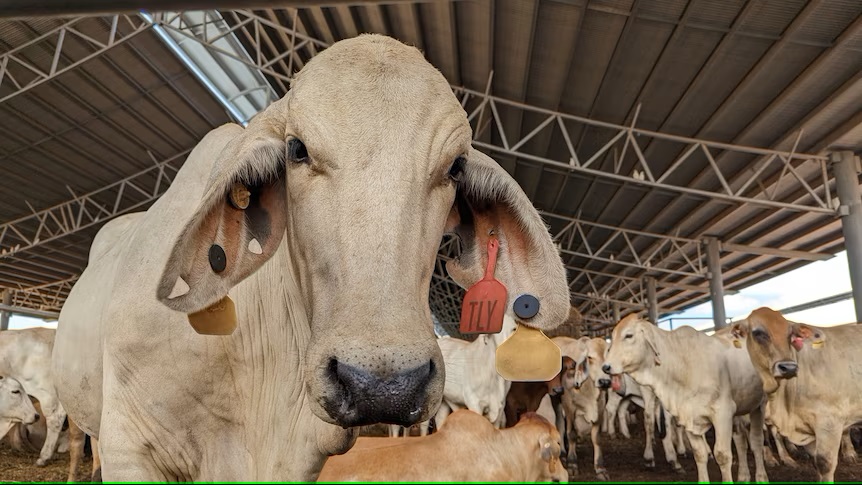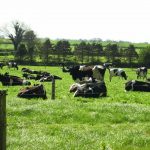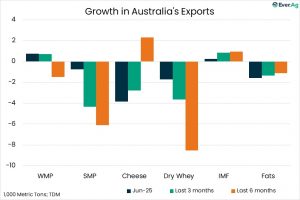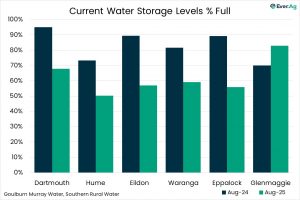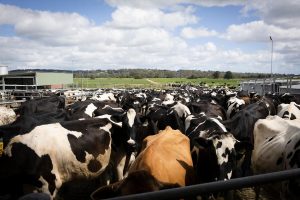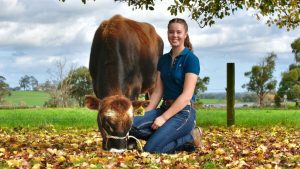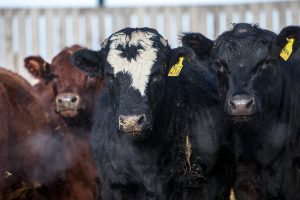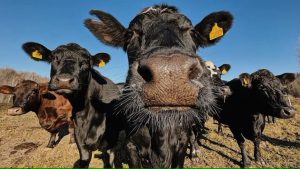
Investigations into the deaths of about 150 Northern Territory cattle suggest the likely cause was a parasitic disease known as coccidiosis.
When about 100 cattle started showing signs of illness while on board a live export vessel to Indonesia last month, a similar event was unfolding at an export depot near Darwin where about 50 cattle died.
The cattle all originated from a station near Ti Tree in Central Australia and had been trucked north to Darwin, where they were kept for a couple of weeks ahead of shipping.
It was originally reported the cattle had probably died of botulism, but NT chief vet Dr Rob Williams confirmed to ABC Rural that while he could not “definitively rule out botulism”, there was evidence the likely cause was coccidiosis.
“Unfortunately we weren’t able to come to a strong conclusion around this, but the evidence we’ve found strongly supports a coccidiosis diagnosis,” he said.
“It’s definitely not a contagious or infectious disease, but is one of those things that cattle live with and normally it’s all good.”
The NT government investigated the cattle deaths at the export depot, while the Federal Department of Agriculture (DAFF) investigated the deaths on board the Brahman Express vessel.
In a statement to ABC Rural a DAFF spokesperson said “coccidiosis has been identified as a potential cause of the deaths, however a definitive diagnosis has not yet been reached”.
What is coccidiosis?
According to Meat and Livestock Australia’s website, coccidia are protozoal parasites living in the small and large intestinal walls of animals with the potential to cause disease under certain conditions.
“Coccidiosis is most common in young animals that have not yet become immune, but can also occur in older animals in conditions of over-crowding, or during periods of stress,” it said.
Clinical signs that would lead a producer to suspect coccidiosis include:
- foul-smelling, profuse scouring with or without blood in the faeces
- straining
- pale gums and membranes around the eyes (anaemia).
Dr Williams said coccidiosis sat in the gut of most cattle and was also common in the environment and “usually doesn’t cause any disease, particularly in adult cattle”.
He said the export depot near Darwin — which remained temporarily suspended from exporting cattle to Indonesia while investigations take place — had “followed their normal procedures and did the right thing”.
“I think this was just an unfortunate event of cattle coming from a reasonably dry area to a wet area and the environmental conditions have contributed to this unusual [case],” Dr Williams said.
“I don’t think this was a management issue, this was more just unlucky… and probably a series of unfortunate events.
“Could more have been done to prevent this? Probably not.”
The NT’s Department of Industry has now concluded its investigation into what caused the cattle deaths at the export depot near Darwin.
Cattle industry calm
In a message to its members on Monday night, the NT Cattlemen’s Association (NTCA) said, while the NT government’s investigation had suggested coccidiosis as the likely cause of the mortalities, the issue was likely to be “multi- factorial”.
“Botulism is still a potential cause and cannot be definitively ruled out, despite no testing suggesting it,” NTCA said.
“Other test results have ruled out a range of potential other diseases, including all important exotic and notifiable diseases among others potential risk vectors, for example tick fever.”
It said there had been no further mortalities and consultation between the Federal and Indonesian governments were still on-going while reporting was being prepared.
“The NTCA has been closely engaged with both Federal and NT government bodies and will continue to monitor the issue to ensure any potential effects on the broader industry can be mitigated.
“At this stage, the risk of this occurring remains relatively low,” it said.
You can now read the most important #news on #eDairyNews #Whatsapp channels!!!
🇺🇸 eDairy News INGLÊS: https://whatsapp.com/channel/0029VaKsjzGDTkJyIN6hcP1K
